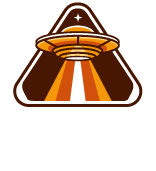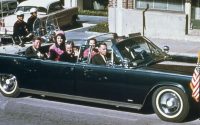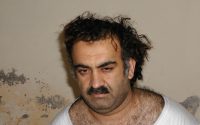The Holocaust Did Not Happen
The Holocaust is one of the most infamous events in history, and yet many believe that it never happened. It is a misconception that is perpetuated by revisionists, who claim that the Diary of Anne Frank is a forgery and that the six million Jews killed in the Holocaust were not murdered. There are a number of reasons why many people choose to believe that the Holocaust did not happen.
Jews, atheists and agnostics answer the most questions about the Holocaust
The Pew Research Center has found that Jews, atheists and agnostics answer the most questions about the Holocaust. However, the survey cannot determine how accurate these answers are.
The survey used four multiple-choice questions. Some were open-ended and allowed respondents to write in their own words what the Holocaust means to them.
A third question asked about the approximate number of Jews killed in the Holocaust. The survey was administered to 10,971 Americans. Almost half of respondents correctly answered the first three questions, and a quarter of them correctly answered all four. Among the three groups, adults aged 65 and older and those with college education were more likely to get the answers right.
U.S. State Department withheld information about Germany’s plan to exterminate all European Jews
The German occupation of the Soviet Union and the Eastern Bloc during World War II led to plans for mass murder of Jews. This ostensible feat was aided by the cooperation of local antisemites.
There were a number of people and organizations who contributed to the effort, ranging from bureaucrats to policemen to government officials. Some of the more prominent examples include the Nazis, their collaborators, the police and the SS.
The aforementioned Bund report, which detailed the achievements of the Nazis and their Allies, reached England and the rest of the Free World via the Swiss underground and the Vatican. It was not entirely accurate, however.
Revisionists deny Nazi atrocities
Holocaust denial is a type of historical revisionism, which tries to whitewash the Nazi atrocities of World War II. Revisionists often argue that the Holocaust never happened and there were no mass killings at the extermination camps.
The most well-known proponent of Holocaust denial is David Irving. He has no university degree, but claims to have a great deal of expertise in the field. However, he has been discredited by a British court.
There are many other “revisionists” who try to make claims that are not true. Some claim that the death toll at the Auschwitz concentration camp was due to disease. Others claim that the Holocaust was a hoax or a propaganda ploy.
Revisionists deny that six million Jews were murdered
One of the most intriguing aspects of the Holocaust is the claim that a mere six million Jews were killed during the war. According to revisionists, the numbers aren’t as impressive as the rosy rosy pictured.
Revisionists point to the many eyewitness reports of Jews being systematically disposed of by the Nazis as proof that a number is too small. They also argue that the gas chambers, while constructed, never existed. Similarly, many Allied soldiers who liberated concentration camps exaggerated what they saw.
The real question is, did six million Jews actually die? If we consider the millions of Jews who died in the occupied territories, the figures are a bit more respectable.
Top-scoring state for the survey was Wisconsin
A recent survey commissioned by the Conference on Jewish Material Claims Against Germany (Claims Conference) finds that most Americans know very little about the Holocaust. The study surveyed 1,000 Americans in all 50 states. It was the first survey of its kind.
It measured respondents’ knowledge of the Holocaust by asking them three questions. They were asked to name at least one concentration camp, the number of Jews killed in the Holocaust, and if they’d ever seen Nazi symbols in their community.
Overall, respondents in Wisconsin and Wisconsin Millennials scored the highest on the three criteria. However, other millennials and Gen Zs in Wisconsin and other states were not as well-versed in the Holocaust.
Revisionists deny that the Diary of Anne Frank is a forgery
There is a debate among Holocaust deniers over whether the Diary of Anne Frank is a forgery. There are some who claim it is not, but a few who claim it is. These claims may or may not be factual.
The debate over the authenticity of the diary has been going on for years. It is one of the most cited documents of the Second World War. In fact, it has become a symbol of persecution of the Jewish people. Some revisionists suggest that it is a mere curio, while others use pseudo-scientific arguments to rewrite history.
There are two organizations that have been linked to the legacy of Anne Frank. One is the Anne Frank Fonds. They have fought back against the revisionists. Their lawsuit led to legislation in seven European countries against Holocaust denial.



